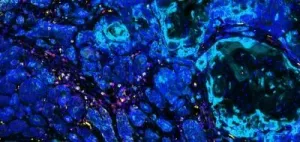The 'Mozart effect' shown to reduce epileptic brain activity, new research reveals
Music by Mozart has been shown to have an anti-epileptic effect on the brain and may be a possible treatment to prevent epileptic seizures, according to new research presented today at the 7th Congress of the European Academy of Neurology (EAN)
2021-06-19
(Press-News.org) (Vienna, Saturday, 19 June 2021) Music by Mozart has been shown to have an anti-epileptic effect on the brain and may be a possible treatment to prevent epileptic seizures, according to new research presented today at the 7th Congress of the European Academy of Neurology (EAN).
Researchers believe that the acoustic (physical) properties within the music are responsible for this effect.
Listening to the famous 18th century composer's Sonata for Two Pianos K448 led to a 32% reduction in epileptiform discharges (EDs). These are electrical brain waves associated with epilepsy and can cause seizures or bursts of electrical activity that temporarily affect how the brain works.
A team led by Professor Ivan Rektor, from the Epilepsy Centre at the Hospital St Anne and CEITEC Masaryk University, Brno, Czech Republic, compared the effects of listening to Mozart's Sonata for Two Pianos K448 with Haydn's Symphony No 94. The effects on brain activity were measured by intracerebral electrodes that had been implanted in the brains of epilepsy patients prior to surgery.
"To our surprise, there were significant differences between the effects of listening to Mozart's K448 and Haydn's No 94", commented Professor Rektor. "Listening to Mozart led to a 32% decrease in EDs, but listening to Haydn's No 94 caused a 45% increase."
"In the second part of our study, we set out to explain the 'Mozart effect' in epilepsy", furthered Professor Rektor. The study found that men and women responded differently to the two pieces of music. Listening to Haydn's music led to suppressed epileptiform discharges only in women; in the men, there was an increase of epileptiform discharges. The acoustic properties, such as the rhythm, dynamics and tone, showed that the acoustic features of music composition have a different effect on men and women.
"We believe the physical 'acoustic' features of the Mozart music affect brain oscillations - or brain waves - which is responsible for reducing EDs".
Researchers have previously hypothesised that the Mozart effect in epilepsy was connected to the emotional effects of music, as dopamine (the main neurotransmitters of the brain's reward system) is released when listening to music. Still, there is no direct proof of the mechanism.
"We found that the reduction in EDs was larger in the lateral temporal lobe, which the part of the brain which participates in translating acoustic signals, rather than in the mesiotemporal limbic region, which plays an important role in the emotional response to music."
"The effects of listening to music on epilepsy cannot be explained by the effect of dopamine released by the reward system", explained Professor Rektor. "Our patients were not music connoisseurs and said they were emotionally indifferent to the two pieces of music. There was, therefore, no reason to believe that K448 evoked more pleasure than No. 94."
Experts believe the study's findings could pave the way for individualised music therapies to be developed to prevent and control epileptic seizures in the future and have called for more research into the effects of music on the brain. Epilepsy affects 6 million people in Europe, and 15 million Europeans have one seizure at some time in their lives.
"Based on our research, we suggest studying the use of musical pieces with well-defined acoustic properties as a non-invasive method to reduce epileptic activity in patients with epilepsy", concluded Professor Rektor.
INFORMATION:
Notes to Editors:
Press Enquiries:
A reference to the 7th EAN Congress must be included when communicating the information within this press release.
For further information or to speak to an expert, please contact Luke Paskins or Sean Deans at press@ean.org or call +44 (0) 20 8154 6396.
About the Expert:
Professor Ivan Rektor is professor of Neurology at Masaryk University, Brno, Czech Republic, Centre and the Department of Neurology at the Faculty of Medicine, St Anne's University Hospital and Research Group Leader at Central European Institute of Technology (CEITEC). He is a world-renowned neurologist, internationally recognised for his research on Holocaust survivors, epilepsy and movement disorders.
References:
1. K Stillova et al. Mozart effect in epilepsy: Why is Mozart better than Haydn? Acoustic quality-based analysis of stereo electroencephalography.
2. World Health Organisation: https://www.who.int/mental_health/neurology/epilepsy/euro_report.pdf
ELSE PRESS RELEASES FROM THIS DATE:
2021-06-19
Highlights
Primary nephrotic syndrome is characterized by high urinary excretion of protein, low protein in the blood, high cholesterol, and swelling in the arms and legs.
A new analysis highlights the high risk of kidney failure and different cardiovascular complications in patients with primary nephrotic syndrome.
Washington, DC (June 18, 2021) -- A form of kidney disease called primary nephrotic syndrome is characterized by high urinary excretion of protein, low protein in the blood, high cholesterol, and swelling in the arms and legs. Patients may face a range of negative health outcomes, but the extent of these effects are unknown. In a study appearing in an upcoming ...
2021-06-19
Highlights
In a study of patients waiting for a kidney transplant, those who experienced various symptoms had a higher risk of dying while on the waitlist.
Symptoms tended to increase or remain unchanged between transplant evaluation and transplantation; however, at 3 months after transplantation, 9 of 11 symptoms lessened.
Washington, DC (June 18, 2021) -- Investigators have examined how various symptoms experienced by individuals with kidney failure are impacted by kidney transplantation. The findings will appear in an upcoming issue of CJASN.
People with kidney failure must often deal with numerous symptoms, such as fatigue, cramping, muscle soreness, numbness, dizziness, and loss of appetite. Although kidney transplantation ...
2021-06-19
New findings published this week in Physical Review Letters suggest that carbon, oxygen, and hydrogen cosmic rays travel through the galaxy toward Earth in a similar way, but, surprisingly, that iron arrives at Earth differently. Learning more about how cosmic rays move through the galaxy helps address a fundamental, lingering question in astrophysics: How is matter generated and distributed across the universe?
"So what does this finding mean?" asks John Krizmanic, a senior scientist with UMBC's Center for Space Science and Technology (CSST). "These are indicators of something interesting happening. And what that ...
2021-06-18
Just as the skeleton and muscles move the human body and hold its shape, all the cells of the body are stabilised and moved by a cellular skeleton. Unlike our skeleton, this cellular skeleton is a very dynamic structure, constantly changing and renewing itself. It consists of different types of protein filaments, which include intermediate filaments and microtubules. Now, a research team from the University of Göttingen is the first to succeed in observing a direct interaction between microtubules and intermediate filaments outside the cell, and also in quantitatively measuring this interaction. The results of the study were published in Nature Communications.
Microtubules are dynamic filaments ...
2021-06-18
Study Highlights
New research reveals how key proteins interact to regulate the body's response to stress
Targeting these proteins may help treat or prevent stress-related psychiatric disorders
The biological mechanisms behind stress-related psychiatric conditions, including major depressive disorder and post-traumatic stress disorder (PTSD), are poorly understood.
New research now details the interplay between proteins involved in controlling the body's stress response and points to potential therapeutic targets when this response goes awry. The study, which was conducted by an international team led by investigators at McLean Hospital, appears in ...
2021-06-18
BOSTON - Researchers from Massachusetts General Hospital (MGH) have discovered a biological mechanism that transforms cells exposed to carcinogens from environmental factors like smoking and ultraviolet light into immunogenic cells that can be harnessed therapeutically to fight treatment-resistant cancers. As reported in Science Advances, that mechanism involves spurring the release of small proteins known as chemokines which, in turn, recruit antitumor immune cells (CD8+ T cells) to the tumor site to block metastasis, potentially enhancing the effectiveness of a new generation of immunotherapies.
"Immunotherapeutics ...
2021-06-18
CHICAGO --- Scientists have long known the brain's hippocampus is crucial for long-term memory. Now a new Northwestern Medicine study has found the hippocampus also plays a role in short-term memory and helps guide decision-making.
The findings shed light on how the hippocampus contributes to memory and exploration, potentially leading to therapies that restore hippocampal function, which is impacted in memory-related aging and neurodegenerative diseases such as dementia, the study authors said.
In the study, scientists monitored participants' brain activity and tracked their eye movements while looking at different complex pictures. The scientists discovered ...
2021-06-18
Birds build nests to keep eggs and baby nestlings warm during cool weather, but also make adjustments in nest insulation in such a way the little ones can keep cool in very hot conditions. Mammals, such as rabbits or groundhogs, sleep or hibernate in underground burrows that provide stable, moderate temperatures and avoid above-ground conditions that often are far more extreme outside the burrow.
Michael Dillon, an associate professor in the University of Wyoming Department of Zoology and Physiology, was part of a research group that examined animals' ability to respond to climate change likely depends on how well they modify their habitats, ...
2021-06-18
BIRMINGHAM, Ala. - A comprehensive health-screening program in rural northern KwaZulu-Natal, South Africa, has found a high burden of undiagnosed or poorly controlled non-communicable diseases, according to a study published in The Lancet Global Health.
Researchers found that four out of five women over the age of 30 were living with a chronic health condition, and that the HIV-negative population and older people -- especially those over 50 -- bore the higher burden of undiagnosed or poorly controlled non-communicable diseases such as diabetes and hypertension.
The study was co-led by Emily Wong, M.D., a resident faculty member at the Africa Health ...
2021-06-18
Irvine, CA - June 18, 2021 - A new study paves the way for the development of next generation therapeutics for the prevention and treatment of Clostridioides difficile infection (CDI), the most frequent cause of healthcare-acquired gastrointestinal infections and death in developed countries.
Published today in Nature Communications, the study reveals the first 3D structure of the Clostridioides difficile toxin B (TcdB) in complex with chondroitin sulfate proteoglycan 4 (CSPG4), a human receptor. The study was co-led by senior author Rongsheng Jin, PhD, a professor in the Department of Physiology & Biophysics at the University of California, Irvine, School of Medicine, and Min Dong, PhD, an associate professor at Harvard Medical School.
"TcdB is one of two homologous C. ...
LAST 30 PRESS RELEASES:
[Press-News.org] The 'Mozart effect' shown to reduce epileptic brain activity, new research reveals
Music by Mozart has been shown to have an anti-epileptic effect on the brain and may be a possible treatment to prevent epileptic seizures, according to new research presented today at the 7th Congress of the European Academy of Neurology (EAN)




